We constantly challenge ourselves to find new solutions that contribute to faster recovery, more comfort and efficiency in the healthcare sector. With our new product, O2MATE, we enable connected care and the use of new digital technology ecosystems in low-care wards.
In 2011 Oxypoint started as a spin-off of the University of Antwerp with the launch of our first product O2COMFORT, an innovative flowmeter for more comfortable oxygen therapy in hospitals. An agreement with Linde, the world market leader in medical gases, has resulted in the Oxypoint O2COMFORT now being available in eight European countries.
Respiration is often underrated in healthcare. It is a critical parameter that reveals a lot about the state of one’s health!”– Philip Hendrickx, founder Oxypoint.
Nobody inhales continuously, do they?
Focusing on improving patients comfort, Oxypoint brought fundamental changes to century-old oxygen therapy routines. In addition to the continuous mode as with traditional devices, our flowmeter features a comfort mode that provides oxygen only during inhalation. This prevents dehydration and irritation of the nasal cavity. The plug & play O2COMFORT flowmeter contributes to more patient comfort, higher therapy loyalty, lower risk of infection and less oxygen spilling in hospitals.
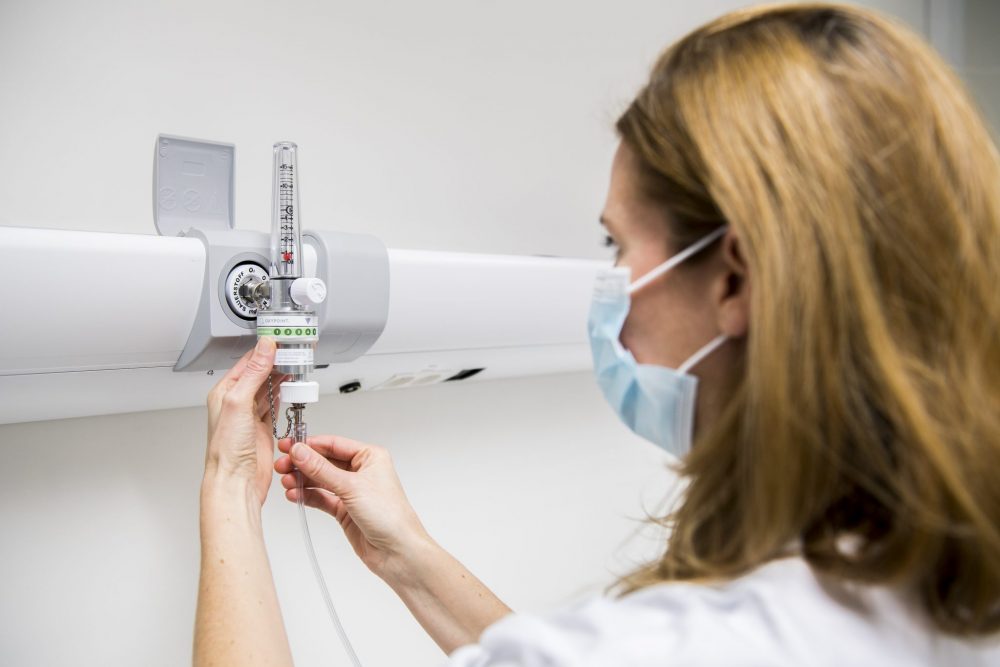
O2COMFORT: When oxygen therapy is more comfortable, the patient is more loyal to the treatment.
Oxygen for the team
“Innovation runs through our veins. But what makes Oxypoint truly exceptional? The emotional connection with every stakeholder. Implementing the Oxypoint O2COMFORT flowmeter in hospitals requires behavioural change. That is why we developed the ‘oxygen for the team’ gamification program, a combination of technical training with a team building experience. The game element increases the interaction and positive energy. This makes the essence (the correct use of the device) linger!”, explains Wouter Van Roost, CEO of Oxypoint.
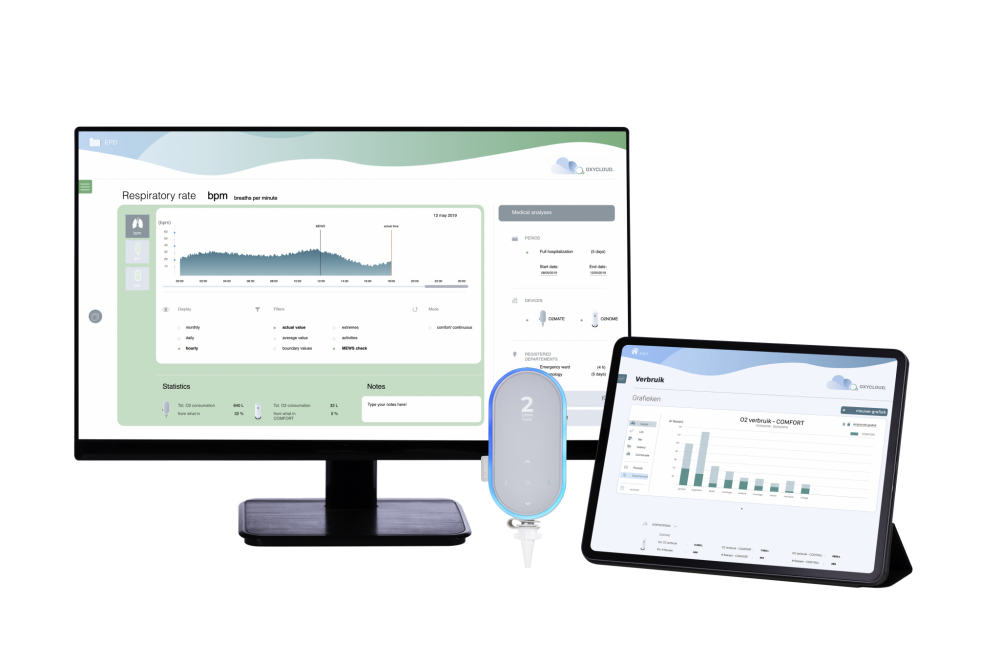
Because of the combination with smart measuring devices, O2MATE is a smart patient companion that continuously captures, registers and supports clinical decisions through smart analytics. “
COVID-19 crisis emphasized the importance of respiration
Respiration is one of the six vital parameters to assess a patient’s condition. But its monitoring is often still done in an archaic way: three times a day, a nurse observes the patient and counts the up-and down movement of the chest. The COVID-19 crisis further emphasized the importance of respiration and the need for accelerated innovation. It is known that COVID-19 affects then respiratory rate and oxygen saturation well before the acute phase in the disease. Up until now, no reliable medical device exists in general hospital wards to help track COVID patients’ respiratory rate and administer oxygen therapy at the same time.
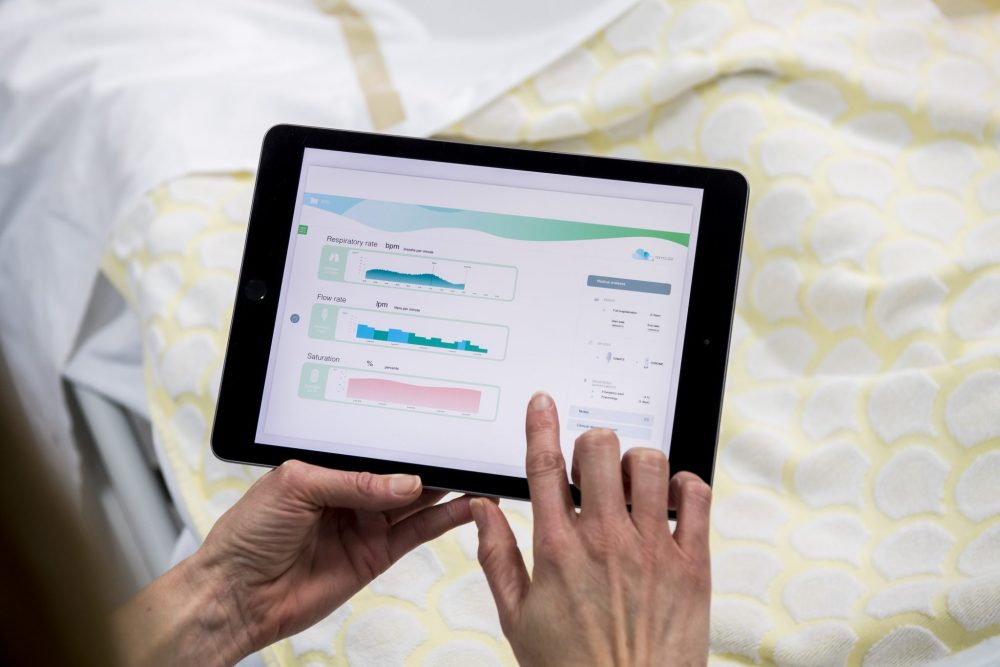
Foto: Frederik Beyens
Smart patient companion
The Oxypoint O2MATE, our latest innovation, digitally records breathing. This data can be automatically linked to other vital parameters, measured by wearables wirelessly connected to O2MATE. Through smart data analysis performed via our dedicated software platform, medical professionals can follow up on their patients even better and more easily. The Oxypoint O2MATE is also a superior digital flowmeter for oxygen therapy. O2MATE is installed in the oxygen wall outlet at a patient’s bedside. This enables connected care and the use of new digital technologies in low-care wards: the first true ‘smart patient companion’.

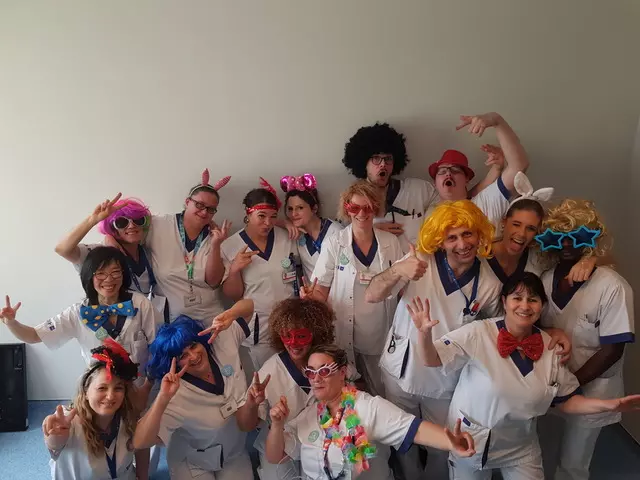
Oxygen for the team: a combination of technical training and teambuilding to induce behavioral change in hospitals.
Intelligent healthcare
Oxypoint develops innovative products and services, improving the comfort of patients and caregivers. The use of O2MATE will also result in a valuable respiratory database. The data collected is a source of knowledge and for potential new applications. Specific programs will be developed for different target groups. The future of O2MATE and smart new services based on data trends and analytics will make it possible to predict and follow-up on patient deterioration, therapy effectiveness and therapy adjustment. In this way, hospitals will become smarter and patients will be able to recover faster!
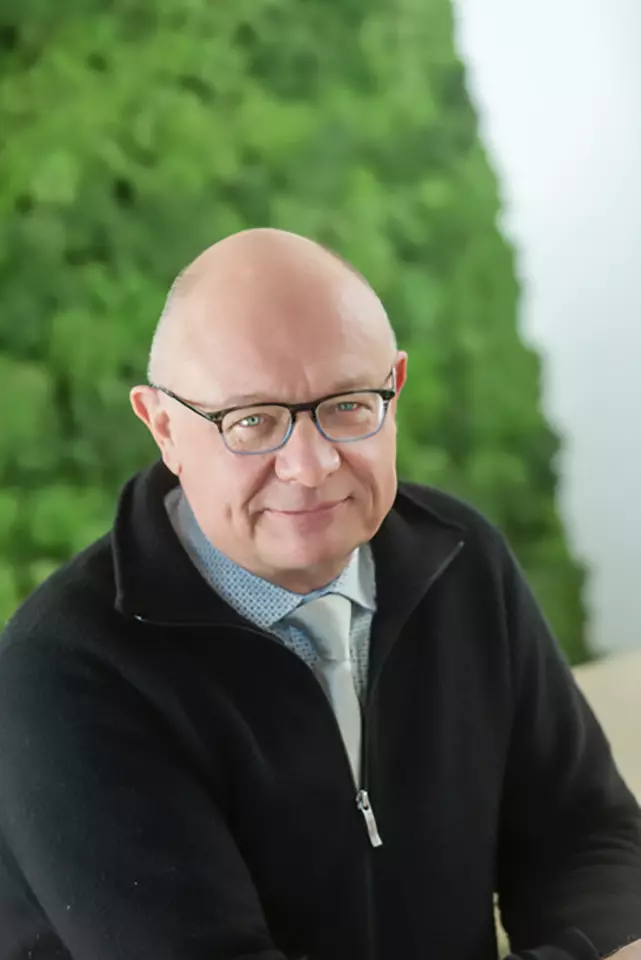
Wouter Van Roost, CEO Oxypoint













